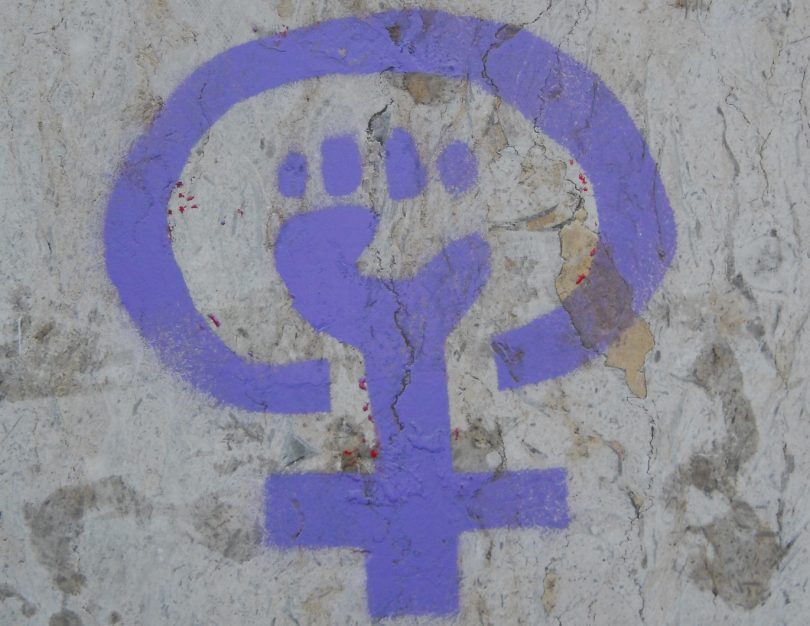As 2023 dawns, we have a once-in-a-decade opportunity to put feminism at the heart of Australia’s international development cooperation – and we should.
Right now, the redevelopment of Australia’s international development assistance policy is underway. This process was kicked off by Minister for Foreign Affairs Penny Wong, in her September speech to the United Nations General Assembly, and is set to be finalised before the federal budget in May 2023. The last time such a process was underway it was diverted by the onset of COVID-19. What came out of that moment was a short-term (two years) document Partnerships for Recovery, and a policy focused through the lens of a pandemic. Not the wrong focus for the times, but also not necessarily one with a nuanced view about balancing short-term and long-term imperatives.
This rare policy refresh, therefore, is a critical opportunity to outline Australia’s medium- and long-term development priorities, and presumably to shift COVID-19 to the backdrop rather than the foreground. But perhaps the greatest opportunity of this policy process is the chance to declare an explicitly feminist approach to Australia’s international development assistance. Doing so is aligned to our national values, is a chance to meet the commitments we have already made, and will advance transparency and accountability for Australia’s aid program.
Because at the heart of a feminist approach is the centring of power.
Gender is itself a system of power. It is a socially constructed norm ascribing characteristics to different (typically binary) categories – woman/man – and it operates to constrain the opportunities of some, and elevate the opportunities of others. It is typically the first system of power that an individual confronts in their life, but by no means the last. In addition to gender are the concurrent systems of race, coloniality, capitalism, ableism, and so on. This is what feminists refer to as intersectionality – the interplay of multiple and concurrent power systems manifesting their constraints and privileges in different ways for different people.
And of course, one of power’s many tricks is the way it can quickly normalise, and then make itself invisible.
So, feminist policy (grounded in intersectionality) starts from a position of grappling with and uncovering how systems of power are operating. Importantly, it also seeks to understand how power is operating for those most excluded from power’s benefits – not only recognising how these groups are being marginalised, but explicitly acknowledging and valuing the experiences and knowledges that live within these groups. A feminist approach asks different questions, and centres different perspectives with the aim of trying to bring power’s privileges into balance – that is, to reach equality.
An explicitly feminist approach to what emerges in 2023 as Australia’s new policy on international development cooperation would have three main benefits.
First, it is complementary to Australia’s commitment to a First Nations foreign policy approach. A First Nations approach is similarly geared towards recognising how power has operated to marginalise First Nations people, in Australia and around the world. Coloniality, modernity, capitalism, race – these are all systems of power playing out in ways that diminish and exclude First Nations worldviews, practices and knowledges in our current system. For a settler-colonial country like Australia, identifying and rectifying this marginalisation is vital, not only for First Nations peoples but for the country as a whole. We all stand to benefit from greater equality. The complementarities to a feminist approach are manifest.
Second, an explicitly feminist policy is a statement of values. If foreign policy is the art of continually advancing and securing Australia’s interests, then a clear statement on what those interests are is critical; it shows integrity and provides transparency. And deeply ingrained in the Australian psyche, if not in practice, is the notion of the fair-go, a vision of ourselves as the country of equality. Our collective aspiration as a country of equality is, itself, the purest form of interest – not necessarily who we are, but who we want to be, what we will strive to achieve.
The third benefit is about accountability. While there are currently eleven countries with explicitly feminist international assistance or foreign policies – Canada, France, Luxembourg, Mexico, Libya, Spain, Chile, Germany, the Netherlands, Colombia and Liberia – many others continue to advance a focus on gender equality without the feminist label. A long-standing debate rages about whether it has to be called feminist to be feminist – this is the subject for another post. But one clear benefit of applying an explicitly feminist label is accountability. Because, if there is truly no difference in practice between a named feminist approach and another way, then the difference is in whether you can be held accountable, and by whom.
Australia talks a lot about being “the partner of choice” in the Pacific. This has much to do with the geopolitics of the region. Still, whatever its driver, it is hard to imagine that Australia wouldn’t be well served by a policy that explicitly values the views and knowledges of those who have been systematically excluded by power systems such as race, coloniality or gender; that has integrity and transparency; and to which we are willing to be held to account.
As DFAT and the Minister thrash out what Australia’s next international development policy will become, we could do worse than to put feminism up in lights.



Love your work, Jo! Great piece.
Thanks so much for this post. Love it!
Thanks Juliet!
Good post, Jo. Practical and useful.
Thanks Linda!